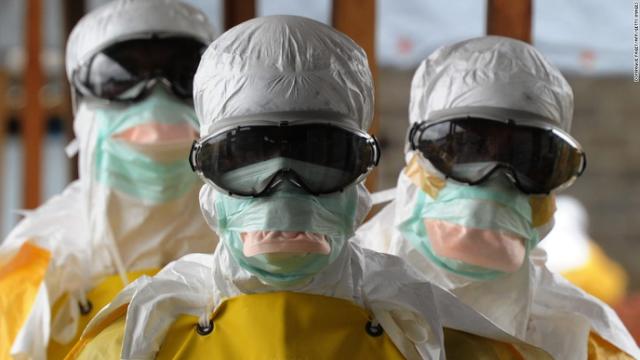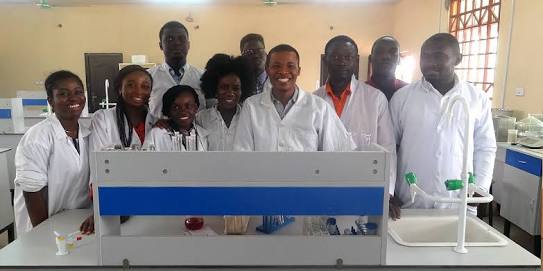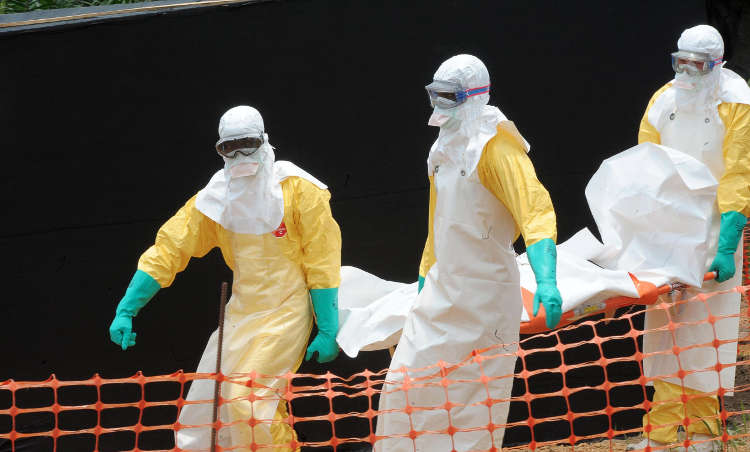The Africa Centre for Disease Control and Prevention (Africa CDC) has activated an emergency operation to support efforts by the Democratic Republic of Congo (DRC) in fighting against the new Ebola outbreak in the country.
A new outbreak of Ebola Virus Disease (EVD) was declared on Tuesday by the DRC government, after two samples tested positive for EVD in Bikoro, Equateur Province.
In response to the new outbreak of Ebola, the Africa CDC said Thursday that it has activated its emergency operation center (EOC) to support national outbreak response efforts, according to an African Union (AU) statement.
The Africa CDC has mobilized its epidemic response team for imminent deployment.
The team includes experts with previous experience in responding to the Ebola outbreaks in West Africa in 2014 and in the DRC in 2017.
A total of 250,000 U.S. dollars has been set aside for outbreak response activities, and more resources are being mobilized, the statement said.
The AU Commission has been informed of the outbreak and is ready to offer comprehensive support of all AU organs to the response.
The epidemic so far appears to be centred around the village of Ikoko Impenge, near the town of Bikoro.
Serge Ngaleto, the director of Bikoro’s main hospital said it had received four new suspected cases on Thursday, including two nurses who had treated others showing symptoms.
“After contact, the nurses began showing signs,” Ngaleto said.
“We have isolated them.”
That would bring the total number of people reporting symptoms to 25, of whom at least 17 have so far died.
This is the ninth time Ebola has been recorded in the vast, forested central African nation since it was first identified near its northern Ebola river in the 1970s.
It comes less than a year after an outbreak killed eight people in Congo’s remote northeastern forests.
Ngaleto said of all cases so far reported, seven were currently in the hospital in Bikoro. All of those could be traced back to Ikoko Impenge, about 60 km away from Bikoro, except for one from the next door hamlet of Pangi.
The health ministry said on Thursday it had dispatched a team of 12 experts to the area to try to trace new contacts of the disease, identify the epicentre and all affected villages and provide resources.
“This advance team brought the first batches of equipment, mostly containing rapid diagnostic tests for the Ebola virus and laser thermometers,” the Health Ministry statement said.
It said they had already arrived in the regional capital Mbandaka, about 150 km away from the affected area.
Ebola is best known and most feared for the internal and external bleeding it can cause in its victims, owing to damage done to blood vessels. Victims often die of shock but symptoms can be vague, including fever, muscle pain, diarrhoea and nausea.
The worst Ebola epidemic in history ended in West Africa just two years ago after killing more than 11,300 people and infecting 28,600 in Guinea, Sierra Leone and Liberia.
Nigeria’s immigration service said on Thursday it had increased screening tests at airports and other entry points as a precautionary measure following the Ebola outbreak in Congo.
Similar measures helped Africa’s most populous country contain the virus during the West African epidemic that began in 2013.
Congo’s long experience of Ebola and its vast, remote geography mean outbreaks are often localised and relatively easy to isolate and snuff out.

 ENTERTAINMENT7 days ago
ENTERTAINMENT7 days ago
 MUSIC6 days ago
MUSIC6 days ago
 LIFESTYLE7 days ago
LIFESTYLE7 days ago
 LIFESTYLE6 days ago
LIFESTYLE6 days ago
 ENTERTAINMENT7 days ago
ENTERTAINMENT7 days ago
 ENTERTAINMENT6 days ago
ENTERTAINMENT6 days ago
 MOVIES6 days ago
MOVIES6 days ago
 SPORTS5 days ago
SPORTS5 days ago






































